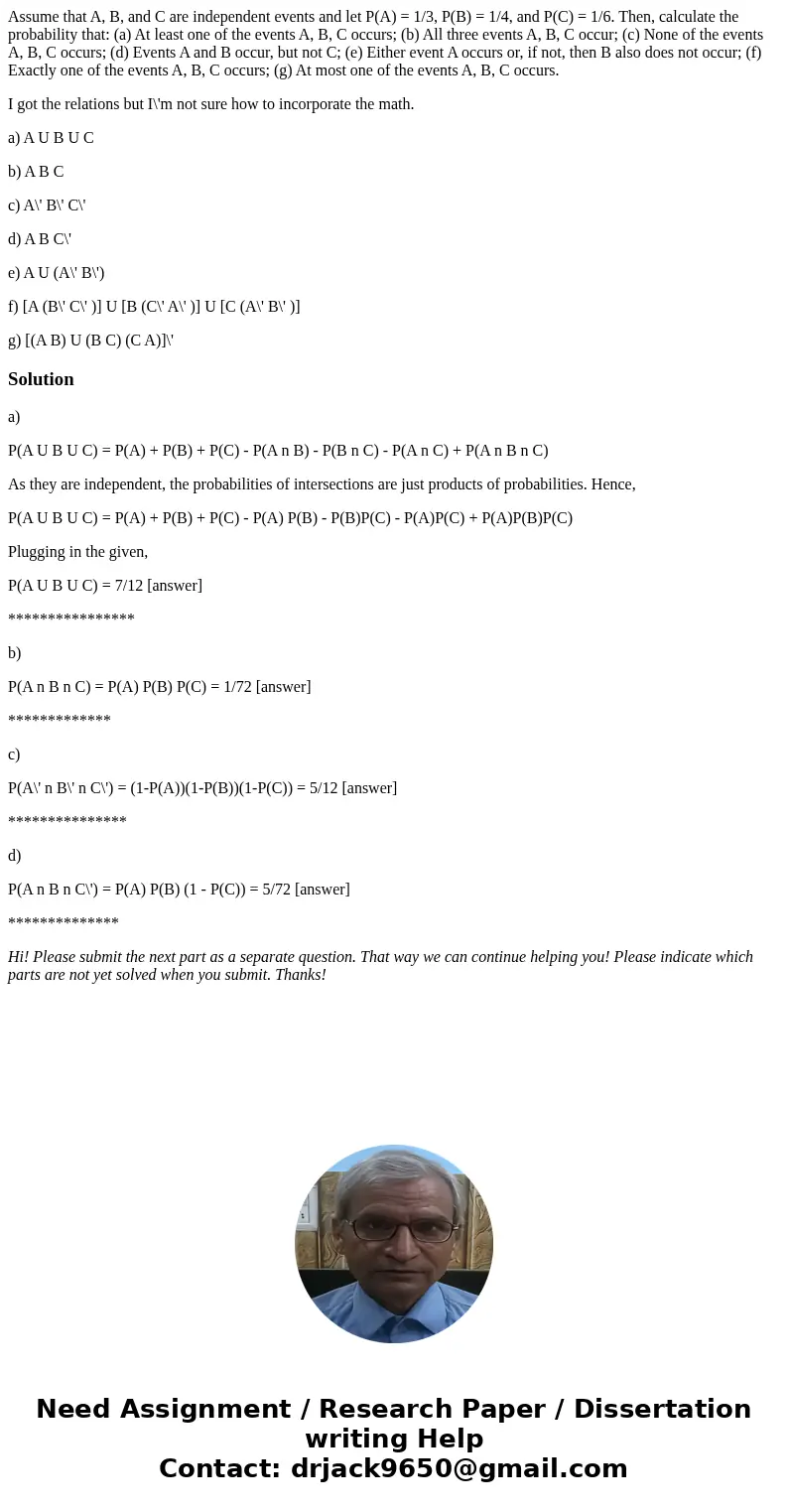Assume that A B and C are independent events and let PA 13
Assume that A, B, and C are independent events and let P(A) = 1/3, P(B) = 1/4, and P(C) = 1/6. Then, calculate the probability that: (a) At least one of the events A, B, C occurs; (b) All three events A, B, C occur; (c) None of the events A, B, C occurs; (d) Events A and B occur, but not C; (e) Either event A occurs or, if not, then B also does not occur; (f) Exactly one of the events A, B, C occurs; (g) At most one of the events A, B, C occurs.
I got the relations but I\'m not sure how to incorporate the math.
a) A U B U C
b) A B C
c) A\' B\' C\'
d) A B C\'
e) A U (A\' B\')
f) [A (B\' C\' )] U [B (C\' A\' )] U [C (A\' B\' )]
g) [(A B) U (B C) (C A)]\'
Solution
a)
P(A U B U C) = P(A) + P(B) + P(C) - P(A n B) - P(B n C) - P(A n C) + P(A n B n C)
As they are independent, the probabilities of intersections are just products of probabilities. Hence,
P(A U B U C) = P(A) + P(B) + P(C) - P(A) P(B) - P(B)P(C) - P(A)P(C) + P(A)P(B)P(C)
Plugging in the given,
P(A U B U C) = 7/12 [answer]
****************
b)
P(A n B n C) = P(A) P(B) P(C) = 1/72 [answer]
*************
c)
P(A\' n B\' n C\') = (1-P(A))(1-P(B))(1-P(C)) = 5/12 [answer]
***************
d)
P(A n B n C\') = P(A) P(B) (1 - P(C)) = 5/72 [answer]
**************
Hi! Please submit the next part as a separate question. That way we can continue helping you! Please indicate which parts are not yet solved when you submit. Thanks!

 Homework Sourse
Homework Sourse